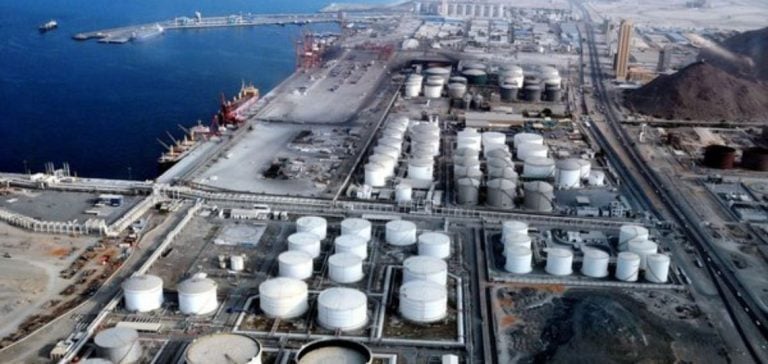Gulf Navigation, a major operator in the maritime transport and storage of hydrocarbons, announces the approval by its Board of Directors of the acquisition of Brooge Energy.
The move will significantly increase the company’s oil and refined products storage capacity in Fujairah, a strategic energy hub on the east coast of the United Arab Emirates.
Brooge Energy currently has a storage capacity of 1 million cubic meters, or around 6.3 million barrels of crude oil.
The acquisition is expected to double this capacity, responding to growing demand for oil infrastructure in the region. This transaction comes at a time when demand for oil storage remains strong, particularly in geographically strategic areas such as Fujairah, which lies outside the Strait of Hormuz.
The port’s logistical security and accessibility make it a major asset for energy companies seeking to optimize their supply chains.
Financial and legal details of the operation
The financing of the acquisition includes a share issue of 448.5 million dirhams (around $122 million), and an unspecified cash payment.
A mandatory convertible bond is also part of the transaction.
Gulf Navigation’s Board of Directors has approved the issue, but the transaction remains subject to shareholder approval at a meeting scheduled for October 2024.
The terms of the sale and purchase agreement are still being finalized.
Brooge Energy has confirmed that it is actively working with Gulf Navigation and their respective advisors to complete the due diligence process.
The acquisition potentially involves all of Brooge Energy’s assets, but no specific details have been disclosed at this stage.
Gulf Navigation’s prospects through this acquisition
The integration of Brooge Energy into Gulf Navigation’s portfolio is part of a strategy to expand its capacities in the United Arab Emirates.
The company already operates a fleet of tankers dedicated to the transport of crude oil and chemicals, as well as an offshore fleet under Emirati flag.
This acquisition would enable Gulf Navigation to increase its role in the oil value chain, from transportation to storage and, potentially, refining.
Fujairah is a key location in this strategy.
It is the only major port in the region accessible without having to cross the Strait of Hormuz, an area often subject to geopolitical tensions.
This makes it a neuralgic point for oil exporters seeking to reduce supply risks.
Brooge Energy’s financial and regulatory challenges
However, this transaction comes at a time when Brooge Energy is experiencing financial difficulties.
In June 2023, the company received a non-compliance letter from Nasdaq due to the late publication of its annual financial statements.
Despite the recent appointment of Bansal as external auditor, Brooge Energy has not yet regularized its situation with regard to US stock exchange regulations.
This could pose a challenge to the completion of the acquisition, but Gulf Navigation remains confident that the transaction will be a success.
In parallel, Brooge Energy is pursuing other expansion projects, including a preliminary agreement for a site in Abu Dhabi to produce green ammonia.
Although these projects are separate from the acquisition by Gulf Navigation, they show that Brooge continues to explore investment opportunities beyond oil storage, although these projects have not yet reached a concrete phase.
Potential impact on the storage market in the Emirates
Fujairah is already well positioned as an energy hub, with several major players such as Vitol, Montfort Trading and Ecomar Energy Solutions.
The integration of Brooge Energy’s assets by Gulf Navigation should reinforce this dynamic and increase the port’s competitiveness against other oil hubs in the region.
The oil storage market in the United Arab Emirates remains attractive, not least because of relative political stability and massive investment in energy infrastructure.
Increased storage capacity in Fujairah could also benefit the regional oil sector as a whole, by providing additional infrastructure to meet growing global demand.
This could ultimately enable the UAE to reinforce its role as a major exporter, while consolidating its position in global energy markets.





















